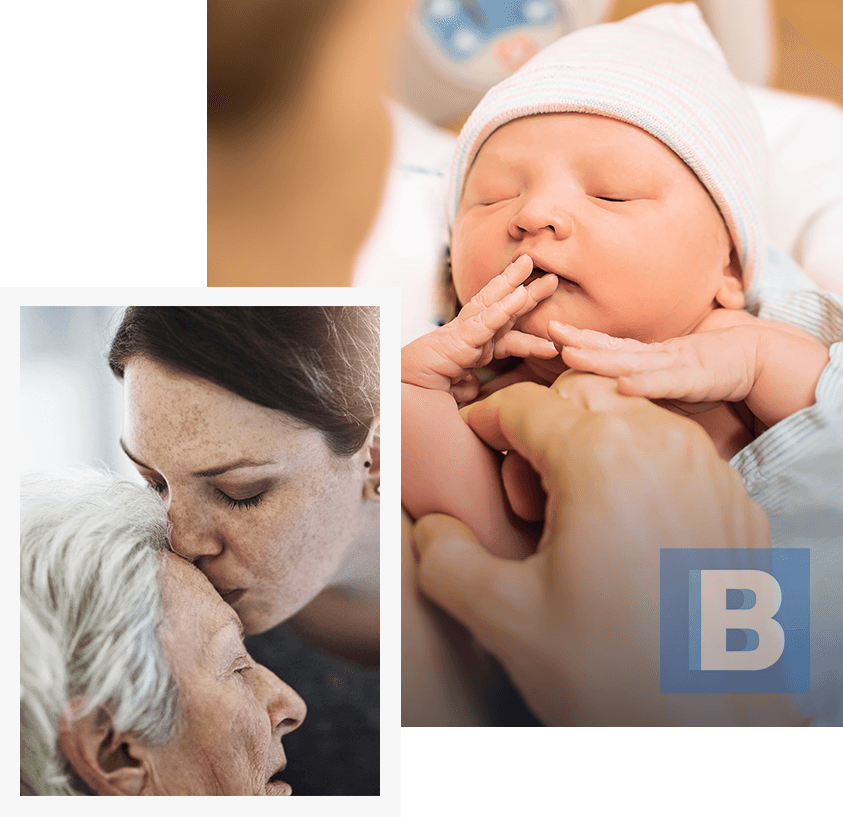

Nursing Errors

Baltimore Nursing Error Lawyer
Injured by a Nursing Error in Baltimore, MD?
At Brown & Barron, LLC, we understand that nursing errors can have devastating consequences for patients and their families. While nurses are often the backbone of patient care, they are also human and capable of making mistakes. Unfortunately, these errors can lead to serious injury or even death.
Our firm believes that every patient deserves quality medical care and has the right to hold healthcare professionals accountable when their negligence leads to harm. If you've suffered due to a nurse's mistake or oversight in Baltimore, reach out now so we can start fighting for your entitled compensation immediately!
Contact us today at (410) 698-1717 for a free consultation!
What is a Nursing Error?
A nursing error refers to a mistake or oversight made by a nurse while providing patient care, which can result in harm to the patient or compromise their well-being. Nursing errors can occur at various stages of patient care, from assessment and medication administration to documentation and communication.
Common types of nursing errors include:
- Medication Errors: These occur when there is a mistake in prescribing, preparing, administering, or documenting medications. This could involve administering the wrong dose, wrong medication, wrong route, or wrong patient.
- Documentation Errors: Mistakes in recording patient information, interventions, assessments, and medication administration can lead to incorrect treatment decisions or lack of proper communication among healthcare providers.
- Communication Errors: These involve inadequate or inaccurate exchange of information among healthcare team members, which can lead to misunderstandings, delays in care, or inappropriate treatments.
- Assessment Errors: Failing to perform thorough assessments or overlooking important patient information can result in missed diagnoses or delayed interventions.
- Infection Control Errors: Improper hand hygiene, failure to follow infection control protocols, or inadequate sterilization of equipment can contribute to the spread of infections.
- Falls and Safety Errors: Neglecting to properly assess a patient's risk for falls or not implementing safety measures can lead to patient falls and injuries.
- Surgical Errors: Errors during surgical procedures, such as wrong-site surgery or incorrect surgical procedures, can have serious consequences for the patient.
- Transcription Errors: Mistakes in transcribing medical orders or prescriptions can result in incorrect treatments being administered.
- Equipment Errors: Incorrect use or malfunctioning of medical equipment, such as infusion pumps or ventilators, can lead to patient harm.
- Discharge Planning Errors: Inadequate discharge planning, including incomplete patient education or lack of follow-up care arrangements, can lead to complications after the patient leaves the healthcare facility.
- Misdiagnosis or Delayed Diagnosis: Failing to accurately diagnose a patient's condition or delaying necessary diagnostic tests can result in delayed or incorrect treatment.
- Cultural and Language Errors: Misunderstandings related to cultural practices, language barriers, or communication styles can impact the quality of care provided to diverse patient populations.
Common Causes of Nursing Errors
Nursing errors can have serious consequences for patients and can occur for various reasons.
Here are some common causes of nursing errors:
- Human Factors and Fatigue: Nurses work long shifts, often with irregular hours, which can lead to fatigue and decreased alertness. Fatigued nurses are more likely to make mistakes in judgment, calculation, and decision-making.
- Communication Breakdown: Poor communication among healthcare providers, including nurses, physicians, and other team members, can lead to misunderstandings and errors. Incomplete or unclear handoffs during shift changes or transfers can result in vital information being missed or misinterpreted.
- Lack of Training and Education: Insufficient training, inadequate orientation to new tasks or equipment, and limited continuing education can leave nurses ill-equipped to handle various situations, leading to errors in patient care.
- Medication Errors: Administering the wrong medication, wrong dosage, or wrong route of administration can have serious consequences. Factors such as similar drug names, complex medication regimens, and interruptions during medication administration can contribute to these errors.
- Documentation Errors: Inaccurate or incomplete documentation can lead to miscommunication and compromised patient care. Failure to document interventions, assessments, or changes in a patient's condition can hinder continuity of care and lead to errors.
- Workload and Staffing Issues: High patient loads and understaffing can put immense pressure on nurses. When nurses are overworked and rushed, they may be more prone to errors due to increased stress and reduced time to double-check tasks.
- Distractions and Interruptions: The healthcare environment is often fast-paced and filled with distractions. Nurses may be interrupted during critical tasks, which can lead to errors or omissions.
- Inadequate Resources and Equipment: When nurses lack access to essential equipment, supplies, or medications, they might make improvised decisions that can result in errors.
- Lack of Standardization: Inconsistent practices and lack of standardized procedures can lead to confusion and mistakes. Clear protocols and procedures help ensure that tasks are carried out consistently and correctly.
- Cultural and Language Barriers: Nurses who work in diverse settings may encounter language barriers or misunderstandings due to cultural differences. Miscommunication in such situations can lead to errors in patient care.
- Lack of Critical Thinking: Nursing requires strong critical thinking skills to assess situations, identify potential problems, and make informed decisions. Inadequate critical thinking can lead to errors in judgment.
- Burnout and Job Dissatisfaction: Nurses who are burnt out or dissatisfied with their jobs may become emotionally detached from their work, leading to decreased attention to detail and an increased likelihood of errors.
We Can Help You Seek Justice
If you or a loved one has been harmed due to a nursing error in Baltimore, our experienced medical malpractice attorneys at Brown & Barron LLC are ready to help you seek justice. We have successfully represented numerous victims of nursing errors and have helped them secure the compensation they deserve.
To learn more about how we can assist with your case involving a nursing error, please Contact us today at (410) 698-1717 for a free consultation! Our team is dedicated to providing compassionate legal representation while aggressively pursuing justice on behalf of our clients.


Our Difference
Why Choose Brown & Barron, LLC?
-
An Unwavering Commitment to What's RightBrown and Barron is a law firm that fights for the most vulnerable members of society to achieve a true sense of closure after a devasting event. We are passionate about the people we work with and the cases we argue and will do whatever it takes to not only restore your justice but also restore your life.
-
A History of Being Responsive & Accessible
Our firm culture ensures that all clients feel like family, as evidenced by more than 150 five-star Google reviews. We ensure from the beginning of your case until the very end that your voice is not only heard but echoed until you obtain the justice you deserve. We work with you throughout the process to make sure that the results we arrive at make sense for you and your family.
-
A Team of Dedicated AdvocatesOur legal team not only has over 137 combined years of trial experience, but we pride ourselves on being the top attorneys in our field. With a specialization in complex cases, we have attorneys who have not only graduated from the most prestigious universities, but who have also proved to be recognized with the profession's most distinguished honors.
-
A Proven Track Record of Success
Brown & Barron has a history of results-oriented representation and we have obtained more than $90 million for our clients since 2017. Our team has a proven record of restoring lives and restoring justice.



Hear from Our Clients
Over 150 5-Star Reviews from Our Past Clients
-
"Brown & Barron, LLC has to be one of the best law firms in the state of Maryland"
Brown & Barron, LLC has to be one of the best law firms in the state of Maryland, possibly the entire country. The quality of their service is second to none. They go above and beyond to serve their clients and get the job done.
- Eric B. -
"Exceeded All Expectations"
The best professional experience I have ever been a part of. I trusted them the entire way, and they exceeded all expectations.
- Darius L. -
"I would recommend Brown & Barron to anyone who needs a lawyer for a medical malpractice case."
Brown & Barron provided efficient, straight-up, and straightforward services in my medical malpractice case. They answered all my questions and kept me informed every step of the way.
- D.D. -
"Working with this law firm gave me confidence and comfort during an emotional and difficult time."
After a two-year process, my case is resolved. I would like to commend and highly recommend Mr. Chris Casciano for his diligence, attention to detail, and support for myself and my family.
- A.L.